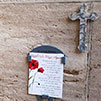Reading the newspapers was one of the first things I did after moving to the UK in 2002. Now I read them mainly for my job as a journalist, but also for pleasure.
Before coming to Britain, I was a reporter at the English daily newspaper published by the Yomiuri Shimbun (then the Daily Yomiuri, now The Japan News). Back then, a newspaper was, to me, something I tasked myself to produce to fill a blank space, not an object for the joy of reading.
As soon as I moved to London, I noticed that many passengers on the trains read newspapers—in 2002 at least—in contrast to their Japanese equivalents, who would doze off or look at their mobile phones.
Just as my fellow passengers, I used to pick up the newspapers that had been left behind by the previous readers. I subsequently began to subscribe to newspapers at home and occasionally browsed some of the popular papers that show women’s semi-nude bodies.
I learned that a paper with a daily photo of a woman’s naked breasts, namely The Sun, is not something you can ignore as a journalist, as it reaches a massive readership and therefore has the political power to influence voting during elections, or so it is believed.
It was also enjoyable to read brilliantly splashed headlines in the popular press that mix humour and wordplay.
I learned that British newspapers have clear views on the issues of the day, including ones of a political nature. Neutrality is not required. It is up to readers to decide what to believe or where the “truth” lies. Impartiality is for broadcasters such as the BBC to maintain.
There are varying degrees of political stances in Japanese newspapers as well. For example, my former employer, the Yomiuri Shimbun, has been recognised for its implicit support of the Liberal Democratic Party and conservative political forces in general.
Nevertheless, members of the Japanese press as well as the public believe that newspapers are supposed to be neutral in their editorial stance and writing style.
This is in stark contrast to the British newspapers and their public, who know that the papers are not fully objective and love their media for it.
Last October, the BBC broadcast a television programme titled “No Sex Please, We’re Japanese”. Based on the reactions of my Twitter followers, I learned that some people in Japan had assumed the programme was offensive without having watched it.
Actually, the segment highlighted the serious issue of ageing in Japan, and many of the Japanese living in Britain who had seen the programme approved of it.
On the whole, Japanese tend to overreact to stories about Japan in the foreign media. Some of them claim the stories are inaccurate if they don’t like what they see. At the same time, ironically, there is also a blind belief by others that foreign press such as The New York Times are always credible because of their international prestige.
When the Great East Japan Earthquake struck in March 2011, I heard the Japanese media disappointed the public with their coverage of the disaster. Some people said the local media became a public relations machine for the Japanese government, bureaucrats, academia and Tokyo Electric Power Company.
Others criticised the media for not taking sufficient risks in reporting, as the press rigidly observed the government-set rules forbidding entry to dangerous zones.
I was in Britain when the disaster hit. From my home in London, I saw leading British journalists flying to Japan immediately after the crisis to report from the Tohoku region.
Their reports were of a high standard and replete with facts and insight. But the reports by Alex Thomson, a correspondent from Channel 4 News, particularly tugged at my heartstrings.
At one point, the camera showed Thomson standing in rubble. The camera then provided a 360-degree view of the scene surrounding him. Thomson said it was unlikely that anyone would be able to live here for a long, long time.
It was a devastating comment for the villagers from the area, but the panorama showed very plainly that this was the likely outcome. I believe he was one of the first journalists to utter this cruel but truthful comment.
I wonder, if a reporter from a Japanese media outlet were in the same spot at that time, would he be bold enough to say such a thing? Or would he keep his mouth shut so that the report “would not worry the public”, a phrase often used by the authorities as a reason not to reveal the full truth to the media?
“It is up to you to decide what’s what” and “telling the truth, however painful, comes first as a journalist” are among the things I have learned from the British media.


